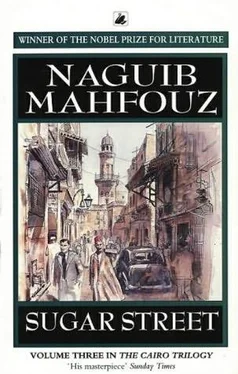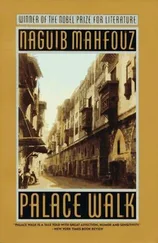After gazing at the platform where the people's spokesman would soon deliver an address, he took his seat. His presence at a crowded gathering liberated a new person from deep inside his alienated and isolated soul, a new individual who was throbbing with life and enthusiasm. While his intellect was temporarily sealed up as if in a bottle, psychic forces ordinarily suppressed burst forth, eager for an existence filled with emotions and sensation. They were incentives for him to strive harder and to hope. At times like these, his life was revitalized, his natural impulses were free to express themselves, and his loneliness melted away. He felt linked to the people around him, as if sharing in their lives and embracing their hopes and pains. It would have been unnatural for him to adopt this life permanently, but it was necessary every now and then to keep him from feeling divorced from the daily routines of the people. For the time being he would postpone consideration of the problems of matter, spirit, physics, or metaphysics, in order to concentrate on what these people loved and hated… the constitution, the economic crisis, the political situation, and the nationalist cause. There was nothing strange about shouting slogans like "The Wafd creed is the nation's creed!" after having spent the previous night contemplating the absurdity of existence. The intellect can rob a person of peace of mind. An intellectual loves truth, desires honor, aims for tolerance, collides with doubt, and suffers from a continuous struggle with instincts and passions. He needs an hour when he can escape through the embrace of society from the vexations of his life. Then he feels reinvigorated, enthusiastic, and youthful.
In the library he had a few outstanding friends like Darwin, Bergson, and Russell, but in this pavilion there were thousands of friends. If they seemed mindless, they still collectively embodied a commendable natural alertness. In the final analysis, such people were as responsible as intellectual giants for shaping the events of history. In his political life Kamal loved and hated; he felt pleased and annoyed. Yet as an intellectual skeptic, he thought nothing mattered. Whenever he confronted this contradiction, he was overwhelmed by anxiety. No sector of his life was free from contradictions and therefore from anxiety.
For this reason, his heart yearned intensely to achieve a harmonious unity both perfect and happy. Where was this unity to be found? He felt that the life of thought was unavoidable for him so long as he had a mind with which to think. Yet that did not keep him from considering the opposite style of life toward which all his suppressed and ignored vital impulses pushed him as if toward a secure rock surrounded by surging water.
Perhaps for causes like these Kamal found this gathering splendid. The larger the crowd got, the more magnificent everything seemed. He waited for the leaders to appear with as much fervor and impatience as the rest of the audience.
Abd al-Muni'm and Ahmad sat next to each other, but Ridwan and his friend Hilmi Izzat were either strolling back and forth in the central aisle of the pavilion or standing at the entrance, where they chatted with some of the officials in charge of the festivities. The two certainly were influential young men. The crowd's whispers created a general hubbub. From the far seats occupied by young people there rose a clamor punctuated by yells. Then a loud cry washeard from outside, making heads turn toward the entrance. Everyone stood up and released a deafening roar. Mustafa al-Nahhas appeared on the dais, where he greeted the multitudes with his sincere smile and mighty hands.
Kamal watched the Wafd Party leader with eyes that had temporarily lost their skeptical look, although he wondered how he could believe in this man after ceasing to believe in everything else. Was it because the man was a symbol of independence and democracy? In any case, the warm relationship between the leader and the public was obvious and worth seeing. It had doubtless been a significant factor in the formation of Egyptian nationalism.
The atmosphere was charged with enthusiasm and ardor. The officials wore themselves out quieting the audience so that a reciter could chant some appropriate verses from the Qur'an, including "Prophet, goad the Believers to fight" (8:65). People had been waiting for this call, and their shouts and applause rang out in response to it. Some of the more sedate deplored the outburst and demanded that the audience be silent out of respect for God's Book. Their protest awakened old memories for Kamal of a time when he had been numbered among these pious souls. He smiled and immediately was reminded of his special world, so full of pairs of contradictions canceling out each other that it seemed empty.
The leader rose to deliver his address, which was clear, effective, and delivered in a resonant voice. Lasting for two hours, it concluded with an open call for the use of force and an unambiguous appeal for revolution. The crowd's excitement reached a fever pitch. People stood on the chairs and yelled with wild enthusiasm. Kamal shouted as passionately as anyone else. He forgot he was a teacher who was expected to maintain his dignity. He imagined that he had been transported back to the glorious revolutionary dayshe had heard about but had not been privileged to experience. Had the speeches back then been as forcefully delivered? Had the crowds received them with comparable enthusiasm? Had death seemed insignificant for those reasons? No doubt Fahmy had been in a gathering like this once and had then rushed off to death and immortality or annihilation. Was it possible for a skeptic to become a martyr?
"Perhaps patriotism, like love," he thought, "is a force to which we surrender, whether or not we believe in it."
The passionate outbursts were intense. The chants were ardent and me tiacing. Chairs rocked with the motion of the men standing upon them. What would be the next step? Before anyone knew what was happening, throngs of people were heading outside. As He left his place, Kamal looked around, searching for his young relatives, but found no trace of them. He left the pavilion by a side door and then walked briskly toward Qasr al-Ayni Street to get there before the crowd. On his way he passed by the House of the Nation and, as always, gazed at it, moving his eyes from the historic balcony to the courtyard, which had witnessed such momentous events in the nation's history. The building had an almost magical fascination for him. Here Sa'd Zaghlul had stood. Here Fahmy and his comrades had stood. On this street bullets had lodged in the breasts of the martyrs. His people were in perpetual need of a revolution to combat the waves of oppression that prevented their rebirth. Periodic revolutions were necessary to serve as a vaccine against this dread disease, for tyranny was the nation's most deeply entrenched malady.
Kamal's participation in this patriotic holiday had successfully reinvigorated him. Nothing mattered to him except the need for Egypt to reply emphatically and decisively to Hoare's declaration. He held his tall, slender body erect and his large head high as his feet pounded against the pavement. He had lofty affairs and significant deeds on his mind as he passed by the American University campus. Even a teacher occasionally had to join a revolution with his students. He smiled almost in despair. He was an instructor with a big head, destined to teach the fundamentals of English and nothing more, even though this language had introduced him to countless mysteries. His body occupied a tiny space on the swarming surface of the earth, while his imagination spun round in a whirlpool embracing all the secrets of nature. In the morning he asked what this word meant and how to spell that one. In the evening he pondered the meaning of his existence this riddle that follows one puzzle and precedes another one. In the morning his heart was ablaze with rebellion against the English but in the evening it was chastened by a general feeling of brotherhood for all mankind as he felt inclined to cooperate with everyone in order to confront the puzzle of man's destiny.
Читать дальше












